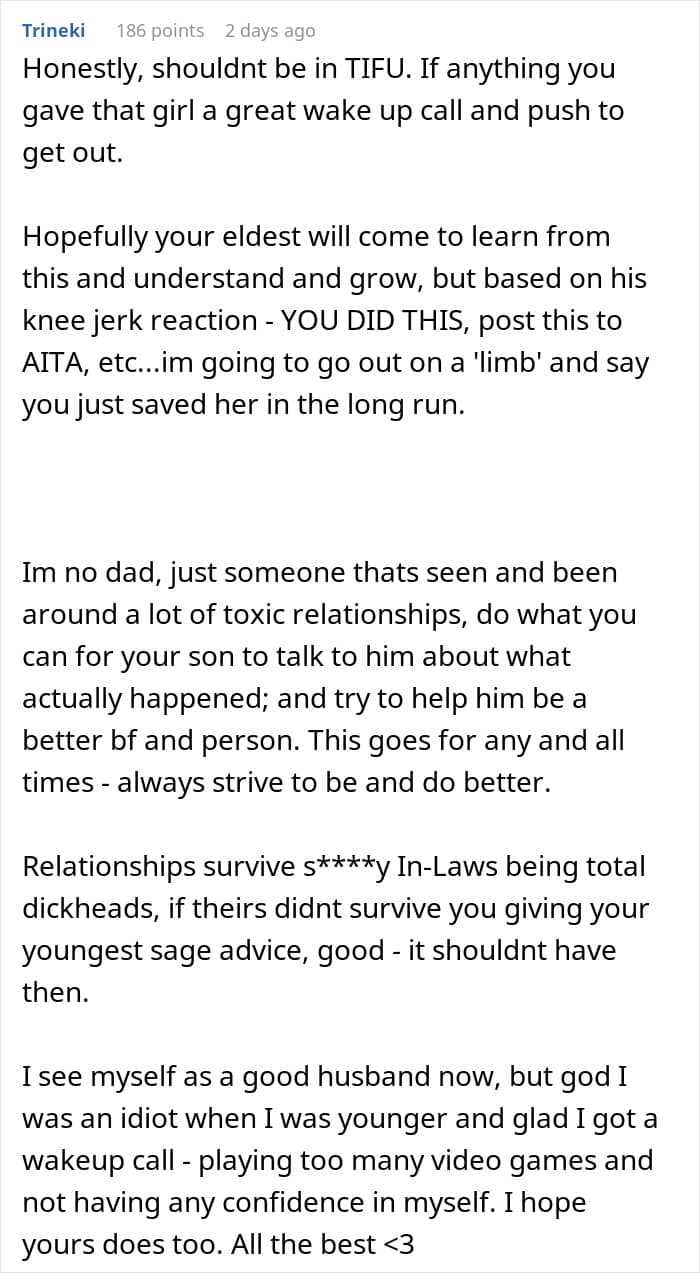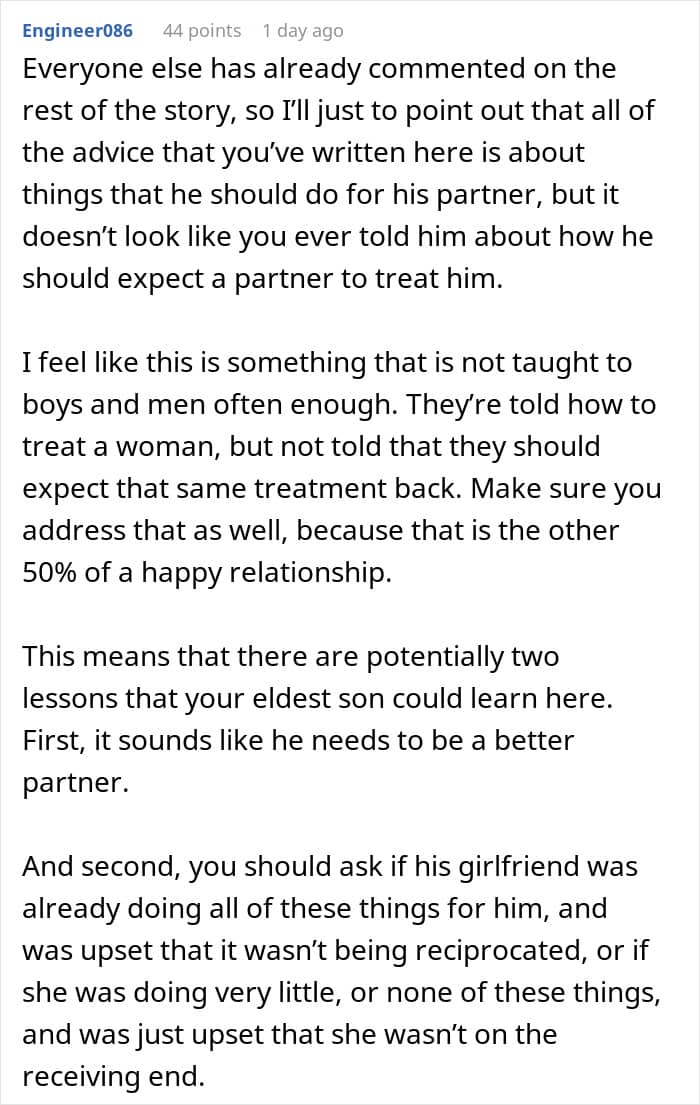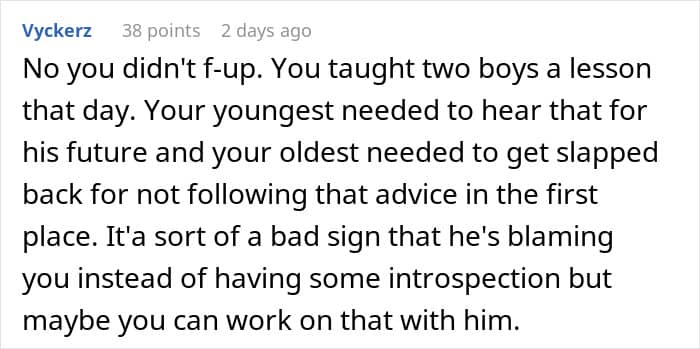Love isn’t always easy, no matter how much we wish it were. So when someone shares a few hard-earned lessons on relationships, it’s worth paying attention.
This Redditor was doing just that—giving his youngest son some dating advice when the topic came up. His eldest son and his girlfriend happened to be in the room, overhearing the conversation. And as it turned out, the words hit harder than expected. The girlfriend listened, took it all in, and realized… her boyfriend wasn’t measuring up. So, she dumped him.
Talk about an unexpected plot twist. Read the full story below.
RELATED:The man was sharing some valuable dating advice with his youngest son

But what he didn’t expect was for it to be the reason his oldest son’s relationship fell apart

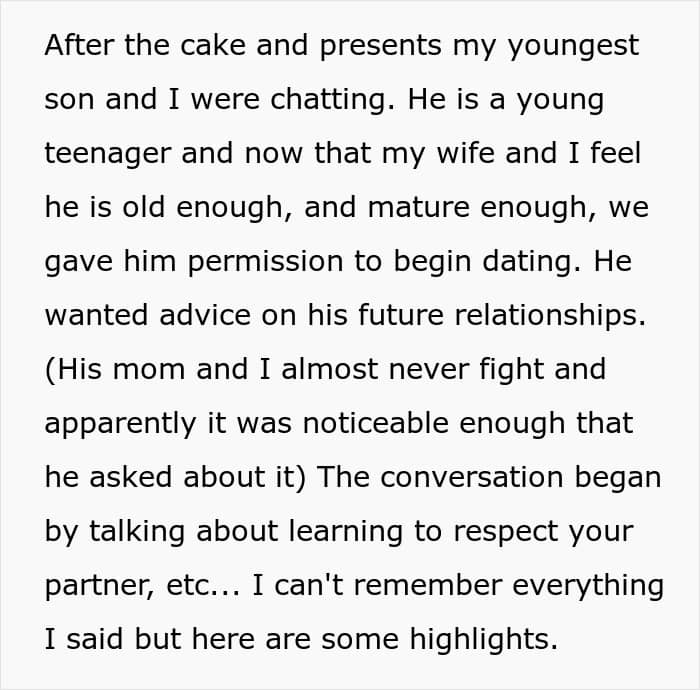
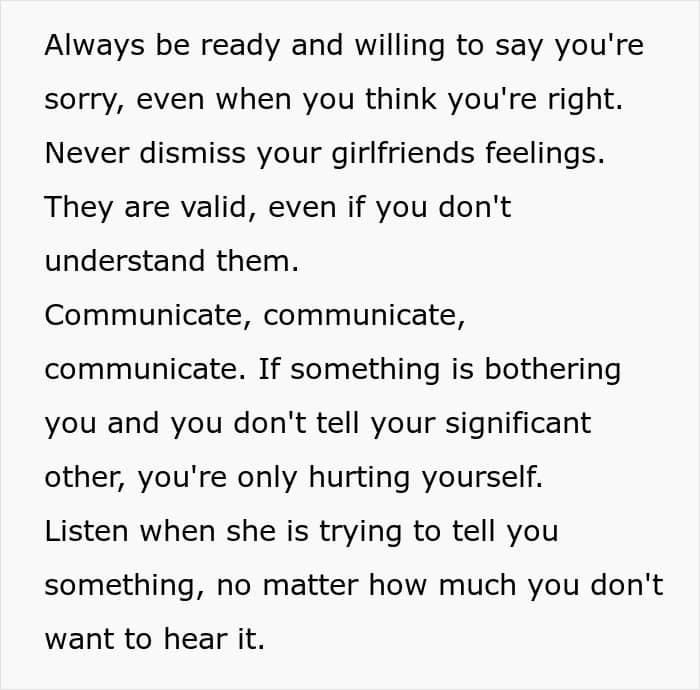
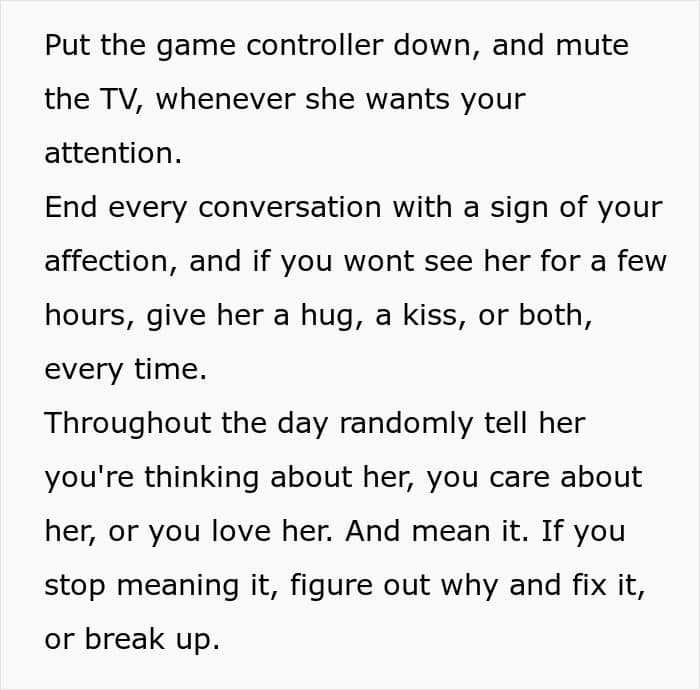
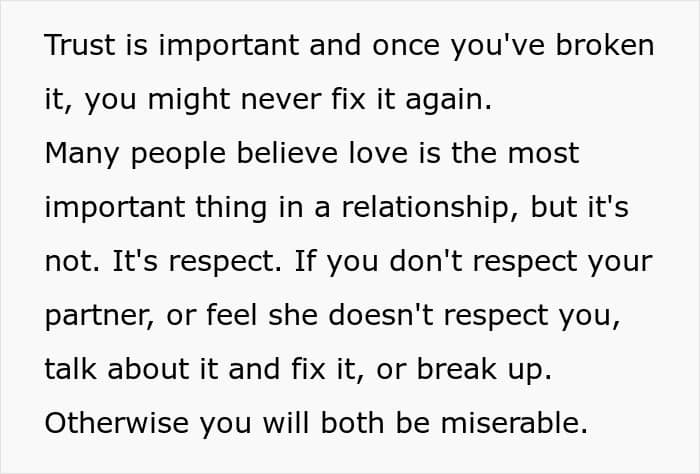

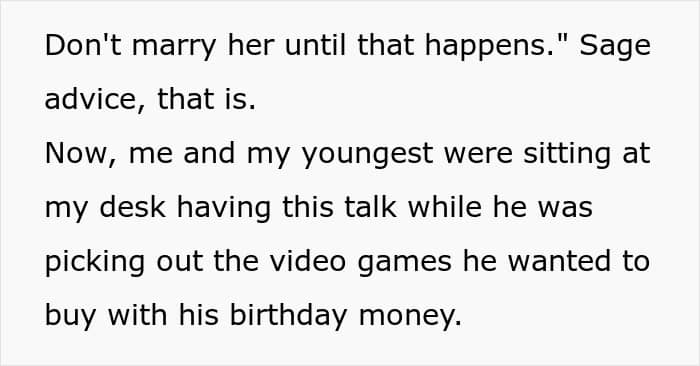
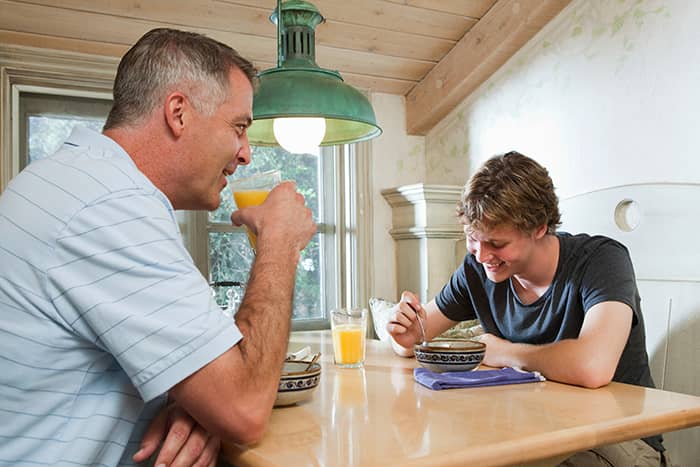



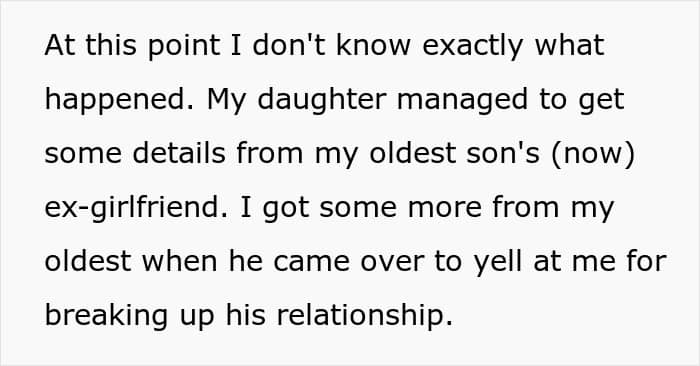

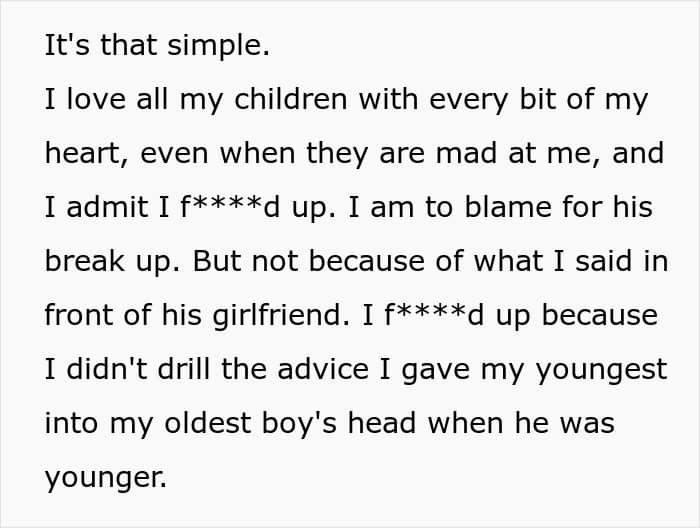

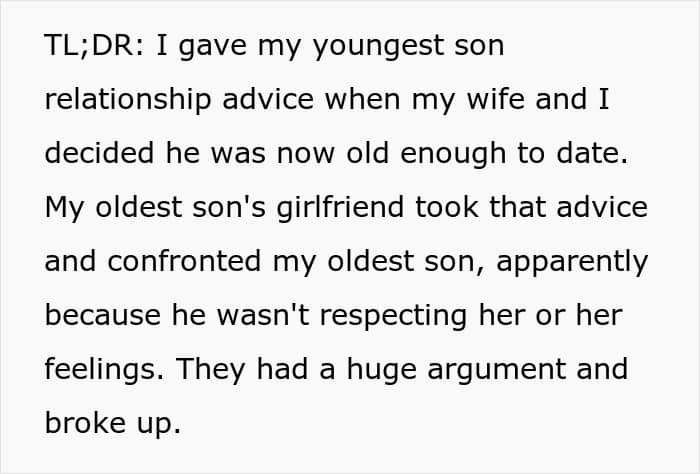
Among parents with young adult children, a third of dads feel less connected to their kids than they’d like
You might not agree with every piece of advice OP shared, but one thing is clear—he’s an involved dad who cares about his kids. And that’s something many fathers struggle with, especially as their children grow up.
According to the Pew Research Center, while most parents of young adults (ages 18-34) feel they’re as involved in their child’s life as they’d like to be, dads are more likely than moms to feel disconnected.
Only 63% of fathers say they’re as engaged as they want to be, whereas 70% of mothers feel the same. Meanwhile, a third of dads (33%) wish they were more involved, but for moms, that number is just 22%.
This gap shows up in how often parents stay in touch with their kids. 63% of dads text with their young adult child at least a few times a week, compared to 81% of moms. The difference is even starker with daily messages—only 19% of dads text their child every day, while 40% of moms do.
Phone and video calls follow a similar pattern. 46% of dads talk to their child multiple times a week, while 61% of moms keep up that level of communication. And when it comes to in-person visits, 27% of dads see their child a few times a week, compared to 35% of moms.
Counselor shares expert advice on how dads can strengthen their relationship with their kids

For many fathers, the real challenge is figuring out how to build and maintain a close bond with their kids. Some may hesitate out of fear of not fitting traditional gender norms, while others worry about losing authority. But Dr. Rachel Glik, a licensed professional counselor, believes that there are ways dads can strengthen their connection with their children, no matter their age.
First, understand your value as a father. “No matter what life stage your children have reached, you are their father for a reason, and there is no one else in the world who can fill your shoes to help your child reach his or her full potential,” says Glik. In other words, don’t underestimate the role you play in their lives.
Make time for one-on-one moments. No matter how old your kids are, spending quality time together matters. And that doesn’t have to mean deep heart-to-hearts, it can be as simple as grabbing a bite to eat or doing an activity together. “I remember when my own father started asking me to lunch when I was in my forties,” Glik shares. “The talks we had at Whole Foods took our relationship to a whole new level.”
Be real and vulnerable. Sharing personal stories, whether about past struggles or funny mishaps, makes it easier for your child to relate to you and feel comfortable being themselves around you.
Show interest in what they love. “When kids feel that you value what they value, this removes barriers and helps them feel connected,” Glik explains. “Entering their world, sharing more together—then they are more inclined to see you as a go-to when they have news, struggles, and experiences to share.”
And finally, own up to your mistakes. Nobody’s perfect, including parents. “The strongest men I know are comfortable enough with themselves that they can own their shortcomings and let go of the ego’s need to be right,” says Glik.
How should parents approach disagreements with older children?
We reached out to family psychotherapist Zara Kadir for expert advice on the topic.
“The answer is to be flexible, open and collaborative,” Kadir told us. “Teenagers are in the process of “individuating” which means finding their identity outside of their nuclear family. They are likely to be exploring who they are and find this in their peers, they find people who are an external reflection of who they feel they are and this might be questioning their parents beliefs and ideals.”
If you want your teen to come to you with important questions instead of fearing your response, then you need to start treating them as you’d like to be treated and respecting their growing autonomy, Kadir explained.
“Instead of telling them what to do or expecting them to do things as you do, be curious,” she encouraged. “For example, if you teenager has a messy room, instead of telling them to tidy it, ask something like “I’ve noticed your room is a bit messier than I’d like it to be and I wondered how you feel? Does it bother you? What are the barriers to you keeping it organised and how can I help?””
You need to show your flexible so in this scenario, if your teen doesn’t like hanging and folding ask them if storage baskets would work better for them, would they like help or rather do it alone? This shows a willingness to be flexible, it’s their bedroom and supporting them in how they feel comfortable will create a much closer relationship than one that’s dictatorial.
The man expressed hope that his son would take the lesson to heart one day

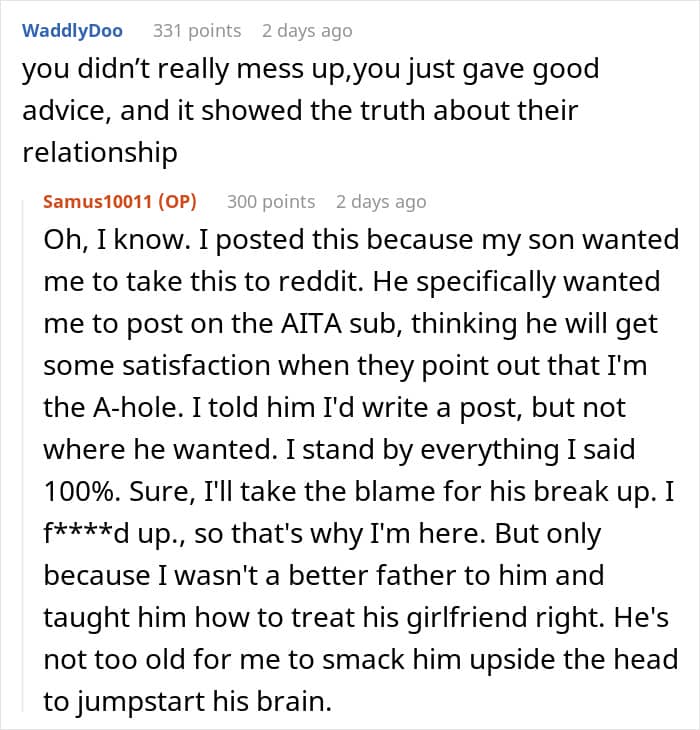


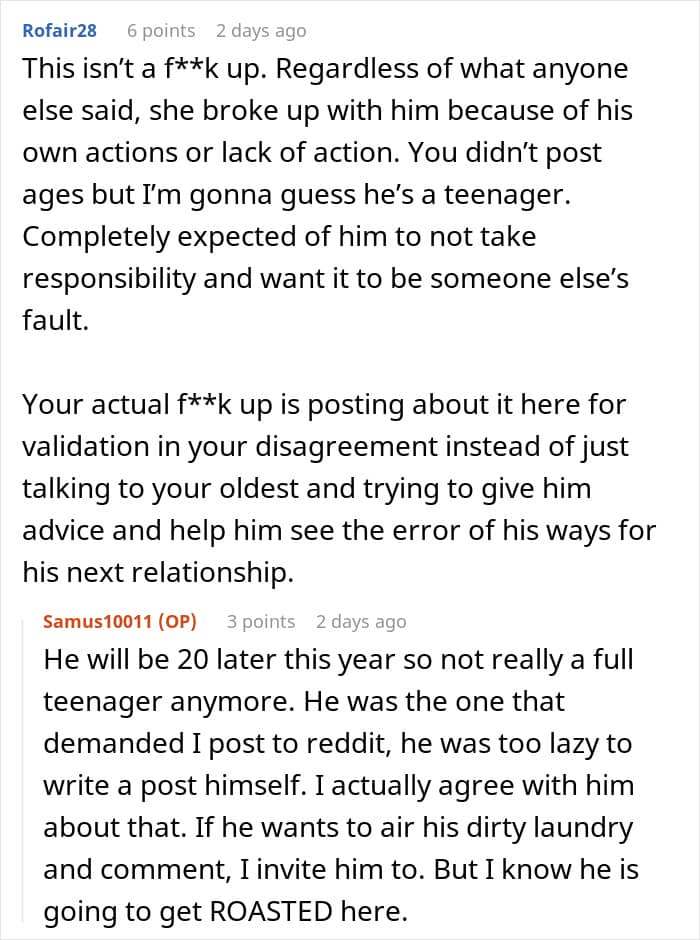
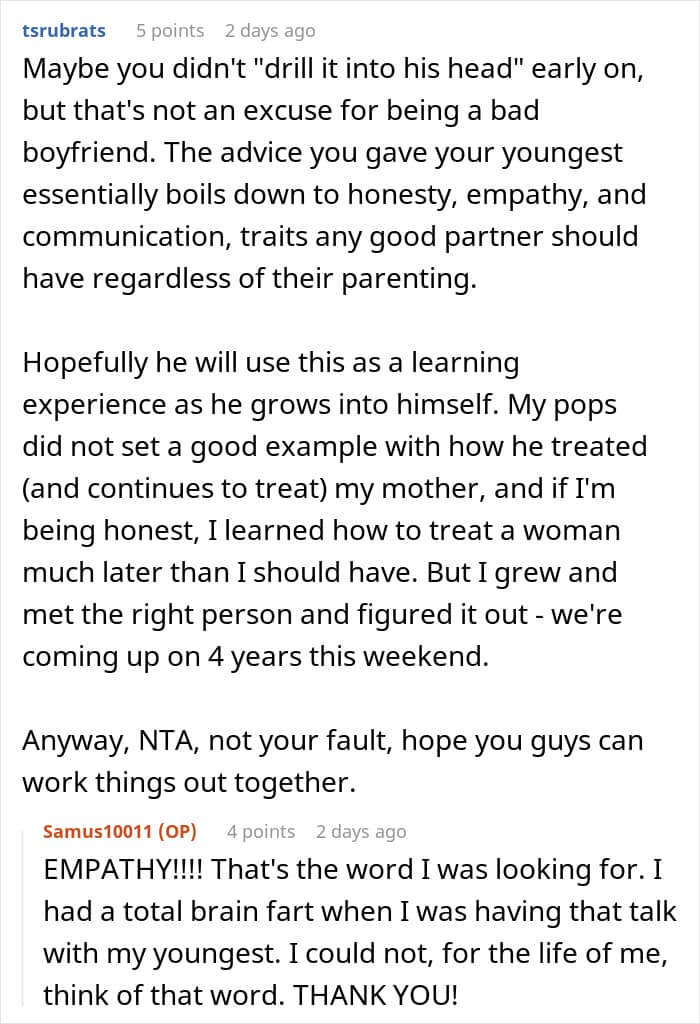
Readers overwhelmingly supported him



